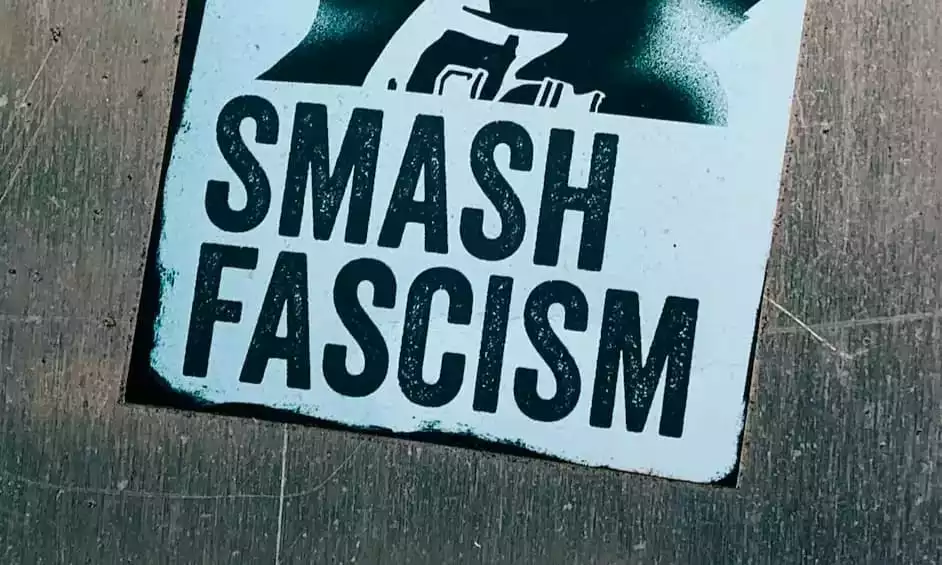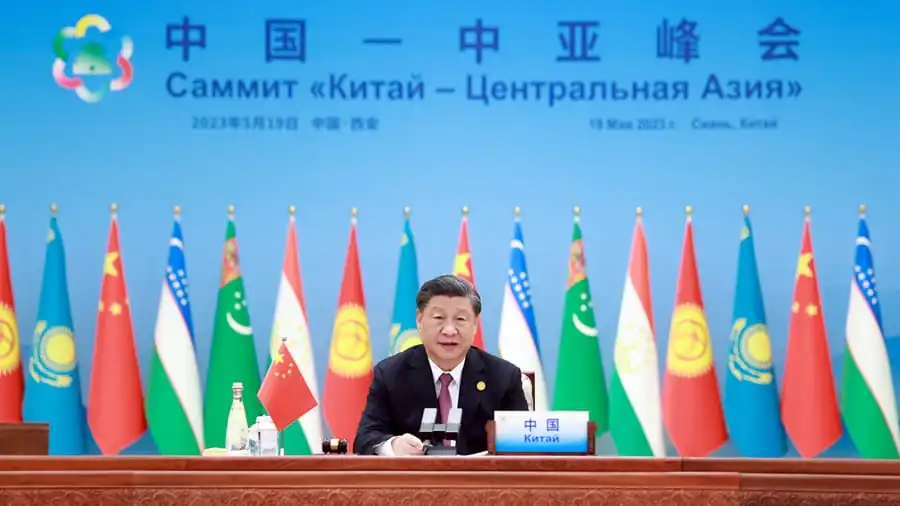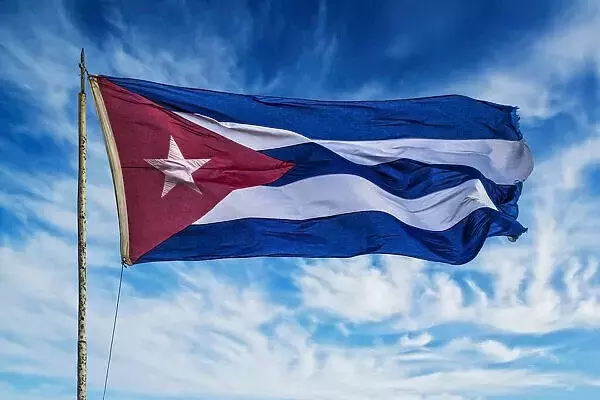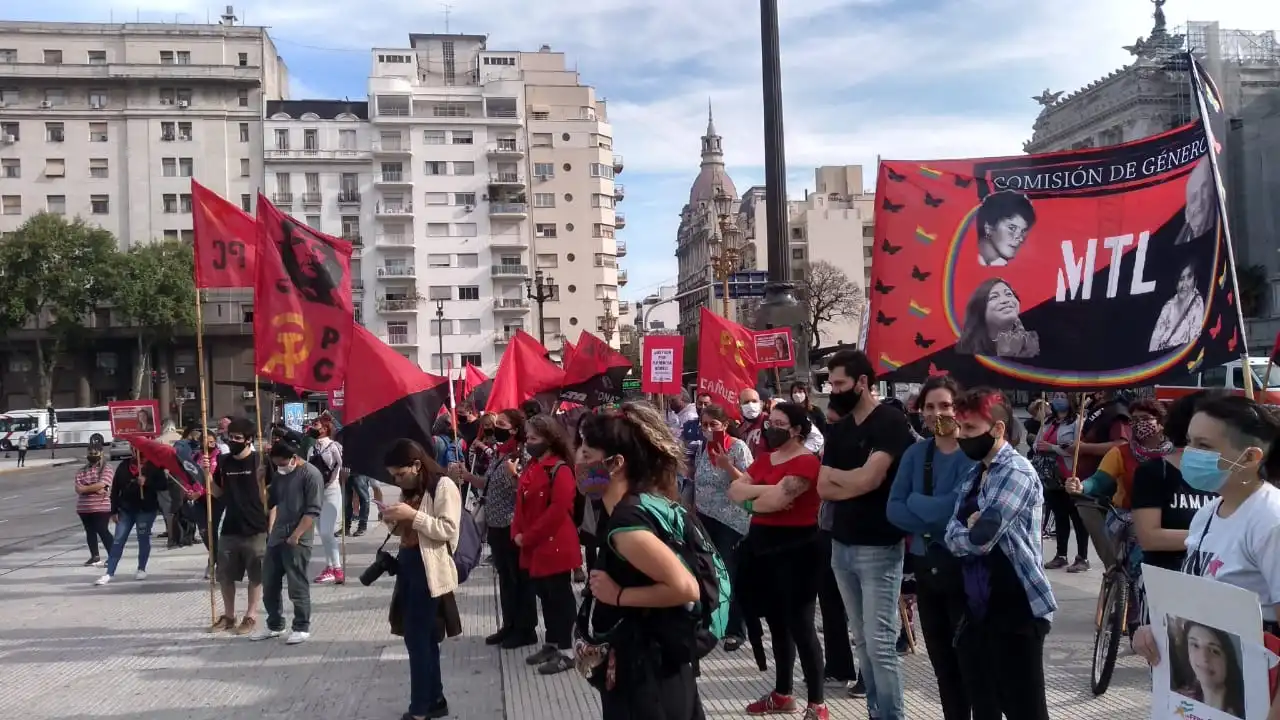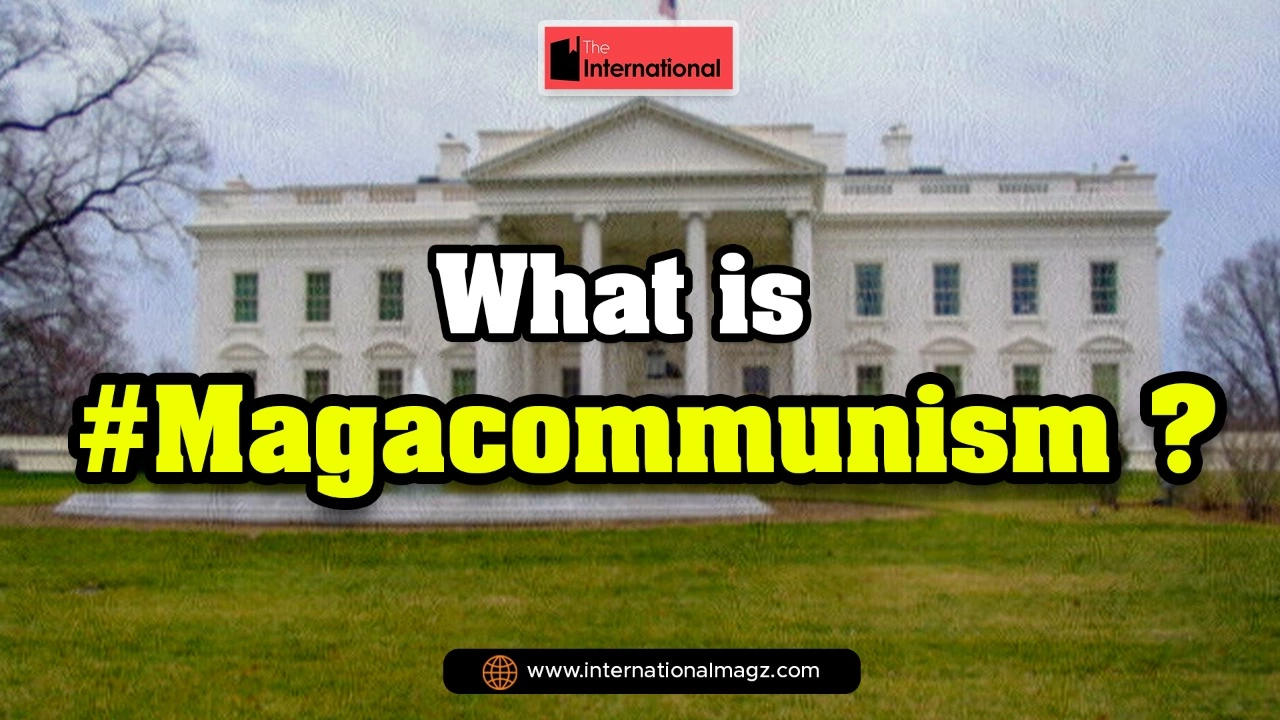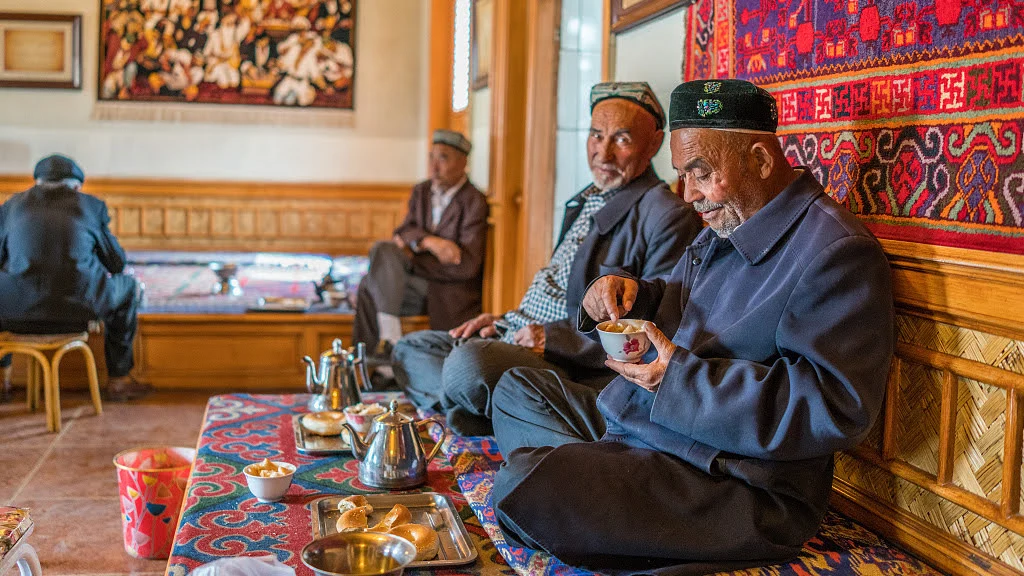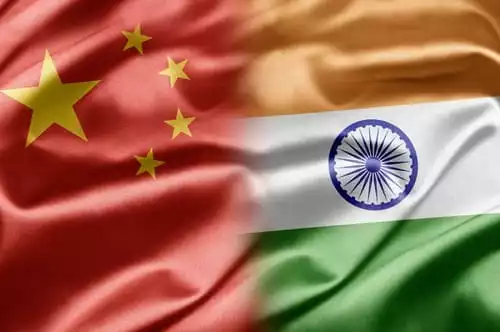Read the 1st part here
The United Front
The single most important aspect of the fight against fascism is unity of action of the workers. This is what the united front means: unity of action of the national and international working classes. Such a united front, in order to be truly international in character must reject the policy of social imperialism of the class collaborationists so as to form bonds of unity with the super-exploited workers of the colonies and imperialized nations. So long as such a split between the workers of the imperialist nations and imperialized nations remains, the unity needed to defeat fascism internationally will be weakened. Important to note as well that such unity of action must be achieved even before the majority of workers commit themselves to the overthrowing of capitalism and creation of a workers’ state; anti-fascist unity of action will necessarily contain a certain ideological heterogeneity insofar as the workers, both in Dimitrov’s time but also in our own, are not yet unified around the idea of proletarian revolution.
To pose as a requirement of entry into the united front such a commitment to revolutionary socialism would only split the total forces necessary to defeat fascism. The goal is rather for the communist workers to lead such a united front and to demonstrate by their courage of conviction and soundness of action that they are the ones best suited to lead and that their ideas go the furthest in establishing working class power. “We must not confine ourselves to bare appeals to struggle for the proletarian dictatorship. We must also find and advance those slogans and forms of struggle which arise from the vital needs of the masses, from the level of their fighting capacity at the present stage of development”.
The most important points to hit upon are convincing the workers that the crises leading to the rise of fascism have to do with the contradictions caused by the owners of capital. Further, there must be prepared the ground to fight back against the stripping of liberties such as they exist within bourgeois-democratic states and against the movement toward imperialist war. The leaders of the united front must be able to prepare the workers for sudden shifts in tactics in accordance with the enemy’s development, and to prepare the ground for mass strike action. The communists must continue their independent forms of activity but must not shirk organization within reformist and non-communist institutions. Within the united front, special consideration must be given to the masses of unorganized workers, who constitute the majority of workers within most countries. The organized workers must make it their business to form bonds with these workers on the basis of unified anti-fascist action.
In the countries where fascism has taken hold, Dimitrov calls on the anti-fascist united front forces to work within the various fascist mass organizations to overturn them. He notes that at this time, there have not been successful examples of mass-organized opposition to fascist dictatorship, Italy having still not achieved a mass anti-fascist basis even after thirteen years of struggle. The heroic resistance to fascism does not equal the successful mobilization of a mass anti-fascist basis, and in this way “In our struggle against fascist dictatorship it is particularly dangerous to confuse the wish with the fact. We must base ourselves on the facts, on the actual concrete situation”. The main issue in the German situation at this time is that the workers conscious of the possibility and necessity of a struggle against fascism so as to overturn it are in the minority, while the larger masses of workers mainly stand idle.
While fascism claims to represent all classes and strata of society, it is in fact the dictatorship of large capital, and as such will come into conflict with the masses it claims to equally represent. In order to win over the masses, the class-conscious workers, the advanced section of the working class, must work within the mass fascist institutions as the defenders of the economic, political, and cultural life of the individual subjected to the fascist dictatorship. Only in this way, Dimitrov claims, can the masses who have been coerced into the various forms of fascist society see how those conditions do not represent their best interest. The class-conscious workers will thereby expand a mass basis of anti-fascist resistance. Even the discontented supporters of fascism, if the right tactics are employed, can be brought to join the ranks of anti-fascist opposition. But this is only possible if the class-conscious workers work within fascist institutions and prove themselves the true upholders of the political and economic rights of the citizen.
It is not true, Dimitrov claims, that the possibility to form means of resistance are made impossible under fascist dictatorships. It is precisely this conception that impedes the will to form such means of resistance, thereby ensuring all the more the triumph of fascism. In order to seize this initiative, the class-conscious workers need to be where the masses are, so must work within the fascist mass organizations. “Fascism has deprived the workers of their own legal organizations. It has forced the fascist organizations upon them, and it is there that the masses are – by compulsion, or to some extent voluntarily. These mass fascist organizations can and must be made our legal or semi-legal field of action, where we can meet the masses”. Communists must “rid themselves once and for all of the prejudice that such activity is unseemly and unworthy of a revolutionary worker”. Dimitrov thus sees revolutionaries working within the mass fascist organizations as those best poised to bring down the fortress of fascism through a Trojan Horse-like internal destruction of the enemy.
In countries where social-democratic governments were in power or in a coalition holding power, the absolute opposition that communists have to the policies of such governments should not impede the attempt to form a united front with such class collaborationist and bourgeois elements. Such an attempt is indeed necessary. Communists have a duty to join their organizations with social-democratic ones wherever the possibility presents itself; such joining, though it is resisted by the social-democratic leaders, will have the effect of radicalizing the overall workers’ movement, a large part of which is non-revolutionary.
Many communists in this period however had a tendency to dogmatically reject the partial measures of the social-democrats instead of building unity around certain partial demands so as to push them further in a radical direction. A general methodological point regarding communists joining forces with bourgeois reformist organizations is put by Dimitrov as follows: “joint action with the Social-Democratic Parties and organizations requires from Communists serious and substantiated criticism of Social-Democracy as the ideology and practice of class collaboration with the bourgeoisie, and untiring, comradely explanation for the Social-Democratic workers of the program and slogans of Communism. In countries having Social-Democratic governments this task is of particular importance in the struggle for the united front”.
In the unions, the same principles as those put forth for working with the social-democratic institutions must be applied. Class collaboration of course had resulted in many of the main unions at this time being very fractious entities, where communists were targeted and removed.
Yet Dimitrov insists that despite these measures, communists must work within such unions, to fight for anti-fascist unity within them. Where dual unions had been formed, such unions should seek to amalgamate with the larger trade union movement on the basis of anti-fascist unity of action.
“Our only condition for uniting the trade unions is: Struggle against capital, against fascism and for internal trade union democracy”. Communists in particular must belong to the trade union movement. They must make it their obligation to transform the reformist mass trade unions from within to the position of anti-fascist industrial unionism.

In addition, special consideration must be given to the question of youth organization within the untied front. The YCLs of the world displayed heroism in the fight against fascism, but heroism is not enough. There needs to be a scientific approach to the struggle, which means engaging certain tasks of basic organizing in order to transform youth organizations into a mass anti-fascist movement. “For the problem of the youth is not only a Y.C.L. problem. It is a problem for the whole Communist movement. In the struggle for the youth, the Communist Parties and the Y.C.L. organizations must actually effect a decisive change. The main task of the Communist youth movement in capitalist countries is to advance boldly in the direction of bringing about the united front, along the path of organizing and uniting the young generation of working people” (49). In essence, Dimitrov is saying that the YCL should not be a sectarian organization or distinct in any fundamental respects from the larger youth organizations; it should be a leader in the united front of the youth, of all those who oppose fascism.
Dimitrov speaks as well of the potential need of forming a united front government before revolution has occurred. He affirms that communists must take part in such a government on the condition that it does not erode Party structure and organizational capacity. Such a coalitional government would be one of united anti-fascist struggle.
“It is primarily a government of struggle against fascism and re-action. It must be a government arising as the result of the united front movement and in no way restricting the activity of the Communist Party and the mass organizations of the working class but, on the contrary, taking resolute measures against the counter-revolutionary financial magnates and their fascist agents”. Such a government would arise in times of crisis when the ruling classes are no longer able to contain the mass anti-fascist movement. Disorganization and paralysis of the existing structure are necessary preconditions. Further, there needs to be mass mobilization of the trade unions against fascism and an openness of the non-communist elements to work with the communists. Both the right opportunists and the ultra-leftists had misunderstood this need, the first believing that parliamentary arrangements were sufficient in themselves, and the second refusing to enter into any united front arrangements with social-democratic parties. The formation of such a united front government, Dimitrov stresses, is not the end goal, is not a substitute for revolution, but is an intermediate stage in the movement toward a revolutionary overthrow of the prevailing class order.
One of the most important struggles the united front faces with respect to fascism is the ideological struggle, which Dimitrov chides communists for not responding to sooner and in more forceful a fashion. The reason for the slowness he states as being due to the disbelief that such a stupid and putrid ideology could actually gain wide-spread traction among the masses: “Many comrades did not believe that so reactionary a variety of bourgeois ideology as the ideology of fascism, which in its stupidity frequently reaches the point of lunacy, was capable of gaining a mass influence at all. This was a great mistake”. He stresses how one must in all respects counter the nationalism that the fascists take up and amplify through mythological revisioning of history, but that we should not in so doing trample upon the pride and certain patriotic sentiments of the workers, reducing them to nothing. We must, on the contrary, give the actual history of the toiling masses through clarifying the decisive roles that working people have played in shaping their own history. “We Communists are the irreconcilable opponents, on principle, of bourgeois nationalism in all its forms. But we are not supporters of national nihilism, and should never act as such. The task of educating the workers and all working people in the spirit of proletarian internationalism is one of the fundamental tasks of every Communist Party. But anyone who thinks that this permits him, or even compels him, to sneer at all the national sentiments of the wide masses of working people is far from being a genuine Bolshevik, and has understood nothing of the teaching of Lenin and Stalin on the national question”.
Proletarian internationalism is the foundation of the saving of all that is good in the nation, that is, the collectivity and history of the workers of the country in their struggle for creating a better world. The Communists of oppressing nations have a special responsibility of educating the people regarding proletarian internationalism, emphasizing how the supposed freedom of their nation cannot be as such so long as other nations’ peoples are being oppressed. In sum, communists must equally avoid bourgeois nationalism and national nihilism: “If we act in this spirit, if in all our mass work we prove convincingly that we are free of both national nihilism and bourgeois nationalism, then and only then shall we be able to wage a really successful struggle against the jingoist demagogy of the fascists”.
This is all to say that in the formation of a united front against fascism, communist parties must play a leading role: there can be no anti-fascist direction if the revolutionary section of the movement is sidelined. To play such a leading role, communist parties must strengthen themselves internally. Strengthening the party and bringing in new members is pursued not solely for the narrow aim of bolstering the party, but because this bolstering is necessary for strengthening the united front forces. One major impediment that Dimitrov highlights is that of sectarianism within the ranks of the parties. Sectarianism is here identified with narrow, dogmatic approaches that do not have their bases in the actual experience of struggle, but in self-selecting theories divorced from the masses.
To appraise on the basis of our wishes of where the revolutionary potential of the masses stands leads to a situation in which communists overestimate the actual possibilities of the masses, believing that difficult intermediary stages of development of revolutionary potential can simply be skipped over. This leads to communists leading their own narrow group and not the masses: “Sectarianism finds expression particularly in overestimating the revolutionization of the masses, in overestimating the speed at which they are abandoning the positions of reformism, and in attempting to leap over difficult stages and the complicated tasks of the movement. In practice, methods of leading the masses have frequently been replaced by the methods of leading a narrow party group”.
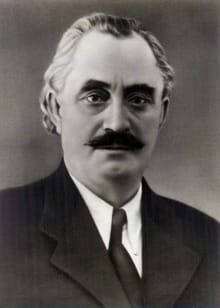
The question of the unity and efficiency of the communist parties in their leading role in a united front against fascism brings into relief the question of the political unity of the forces, which can provoke the demand that the communist parties and social-democratic parties join ranks to form a unitary political leadership at the party level. Dimitrov finishes his report with an analysis of the conditions of this unitary formation. The increasing amalgamation of the forces of labor within the unions was bringing into debate the question of the amalgamation of political structures. The conditions of political amalgamation rest on principles that Dimitrov elaborates as follows: the complete independence from the bourgeoisie and rupture of the social-democrats with the bourgeois bloc; that unity of action prevails; that revolutionary overthrow of the bourgeoisie through a dictatorship of the proletariat be recognized; that support for the imperialist wars of the bourgeoisie be completely rejected; and finally that the resulting amalgamated party be based on the organizational principle of democratic centralism. Dimitrov explains the reason for the first condition, that total independence from the bourgeoisie be sought, as follows: “the whole experience of the labor movement, particularly the experience of the fifteen years of coalition policy in Germany, has shown that the policy of class collaboration, the policy of dependence on the bourgeoisie, leads to the defeat of the working class and to the victory of fascism. And only the road of irreconcilable class struggle against the bourgeoisie, the road of the Bolsheviks, is the true road to victory”. In terms of unity of action, he states that “To propose to unite at once [with the Social-Democrats] instead of forming a united front means to place the cart before the horse and to imagine that the cart will then move ahead”. Unity of anti-fascist action must be guaranteed before hand, on the basis of which unity of political ideas can then be constructed. As to the third condition, the recognition of the necessity of a dictatorship of the proletariat, Dimitrov states that “the bourgeoisie would rather drown the labor movement in a sea of blood than allow the proletariat to establish socialism by peaceful means”. The condition of total opposition to imperialist war is also a condition of amalgamation in that “all imperialists combine their feverish preparations for war with extremely intensified exploitation and oppression of the working people in their own country”. Opposition to such preparations and deployments of force is thus a non-negotiable point of unity for whatever amalgamation of political parties might be brought about. Finally, the condition of democratic centralism as the guiding principle of action must be guaranteed because, quite simply, only through it can the victory of the working masses be brought into existence. Victory is inseparable from thoroughgoing, expansive democratic investment of the party structure, together with the discipline of unity of action to bring into existence what is decided in the democratic realm of the multiplicity of perspectives and ideas that define the collective.
The struggle to advance the united front line through developing forms of relation to the social-democrats and reactionary trade unions necessarily led to critiques from certain communists that a shift rightward is at play here in the Communist International movement at this time, where the transition to unity of action against fascism has superseded the position of opposition to “social fascism”, the policy that had been in practice hitherto that practiced opposition on principle with the social-democrats. Dimitrov chides the communists who put forward this critique as follows: “We want our Parties in the capitalist countries to come out and act as real political parties of the working class, to become in actual fact a political factor in the life of their countries, to pursue at all times an active Bolshevik mass policy and not confine themselves to propaganda and criticism, and bare appeals to struggle for proletarian dictatorship”. He continues this thought with the statement that “We are enemies of all cut-and-dried schemes. We want to take into account the concrete situation at each moment, in each place, and not act according to a fixed, stereotyped form anywhere and everywhere; not to forget that in varying circumstances the position of the Communists cannot be identical”. The united front policy is thus put forward to overcome the isolation of the revolutionary vanguard with respect to the masses, to not be fixed within certain schemes that are non-flexible and tend toward a turning inward of revolutionary sentiment, a fixation on ideas over that of the multifaceted application of ideas. It is thus a question of genuine revolutionary realism which is to “put an end to the last remnants of scholastic tinkering with serious political questions”. The international united front of anti-fascist forces thus brings to bear the struggle of living socialism against dead doctrinarism. Only living socialism can “sail on the turbulent waters of the class struggle”.
Editor's Note:
The views and informations expressed in the article are solely those of the author and may or may not reflect the views of The International. We believe in providing a platform for a range of viewpoints from the left.
